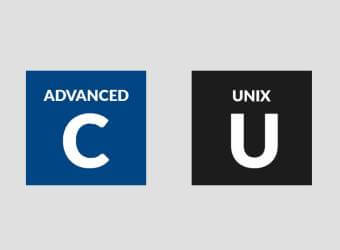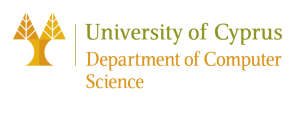
The course teaches intermediate and advanced programming concepts, techniques and tools through a language that compiles to machine code. The course familiarizes the students with advanced programming constructs utilized for handling memory and files. Advanced topics in compilation, debugging, documentation and optimization of software. Methodological aspects in developing large-scale system software that addresses complex problems. Basic commands for programmers in the UNIX operating system. i) Introduction to C for Programmers: types x86/x64, loops, selections, expressions, arrays, functions, IO, basic program organization, ii) Advanced C programming constructs: program anatomy and processes, memory and addresses (pointers, pointers and arrays, strings and examples), structures, unions and enumerations. Linear and non-linear programming data structures (dynamic memory allocation, lists, queues, doubly-linked lists, trees, applications and examples). iii) Advanced Compilation Topics and Tools: preprocessor directives, compiling multiple files with makefiles, static (.a) and dynamic (.so) linking of object files (.o), error handling (assert.h), static and dynamic code analysis (valgrind and gprof). iv) low-level programming (binary operators and examples, binary files and hexdump). v) Basic commands for programmers in the UNIX operating system: file system, redirection and pipes, permissions and basic filters.
- Teacher: Yiorgos Chrysanthou
- Teacher assistant: Pavlos Antoniou
